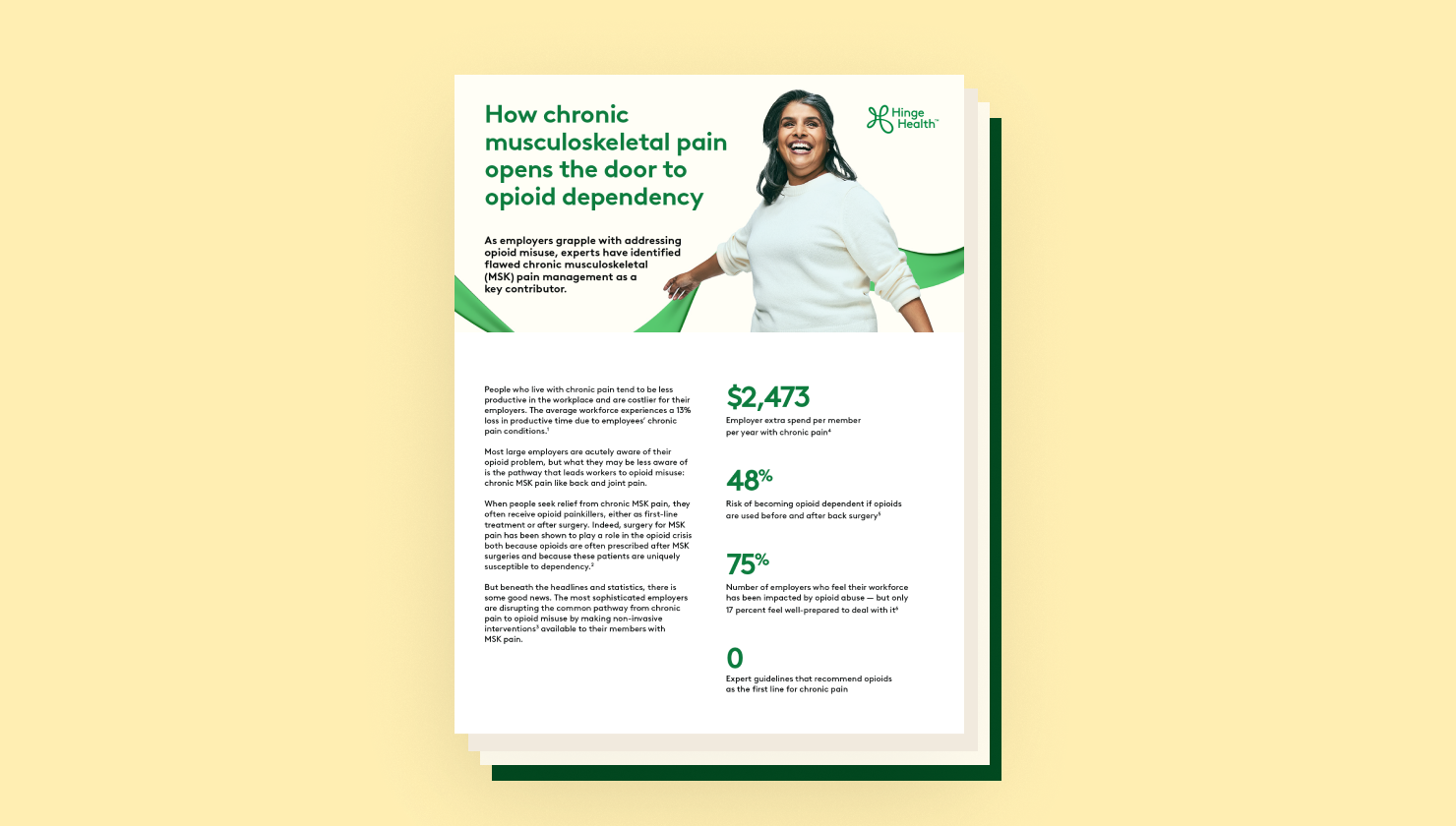How chronic musculoskeletal pain opens the door to opioid dependency
As employers grapple with addressing opioid misuse, experts have identified flawed chronic musculoskeletal (MSK) pain management as a key contributor.
Opioid use comes at a cost.
48% of people
risk becoming dependent if opioids are used before and after back surgery²
75% of employers
feel their workforce has been impacted by opioid use — but only 17% feel well-prepared to deal with it³
$2,473 per year
is the extra employer spend per member with chronic pain⁴
Download the full report
Empower your workforce to avoid opioid misuse by making non-invasive, and non-addictive, care available.
